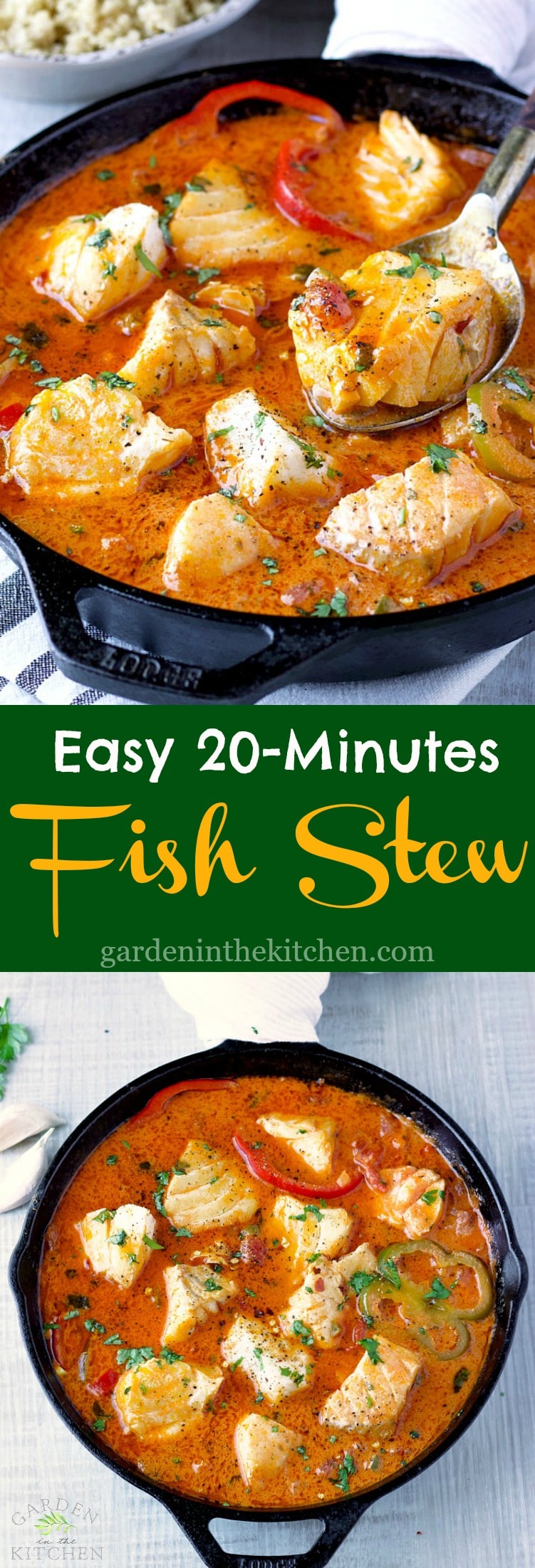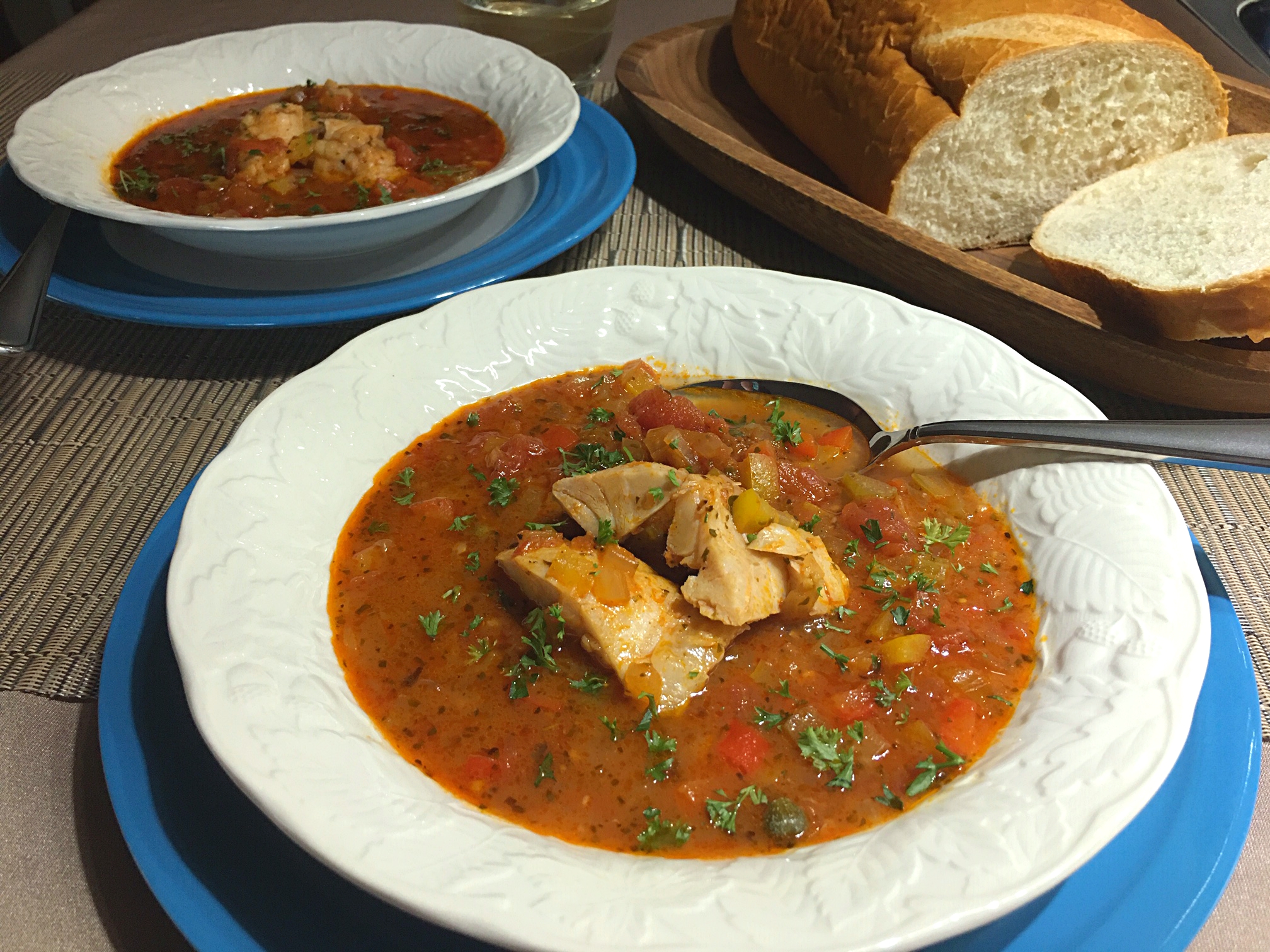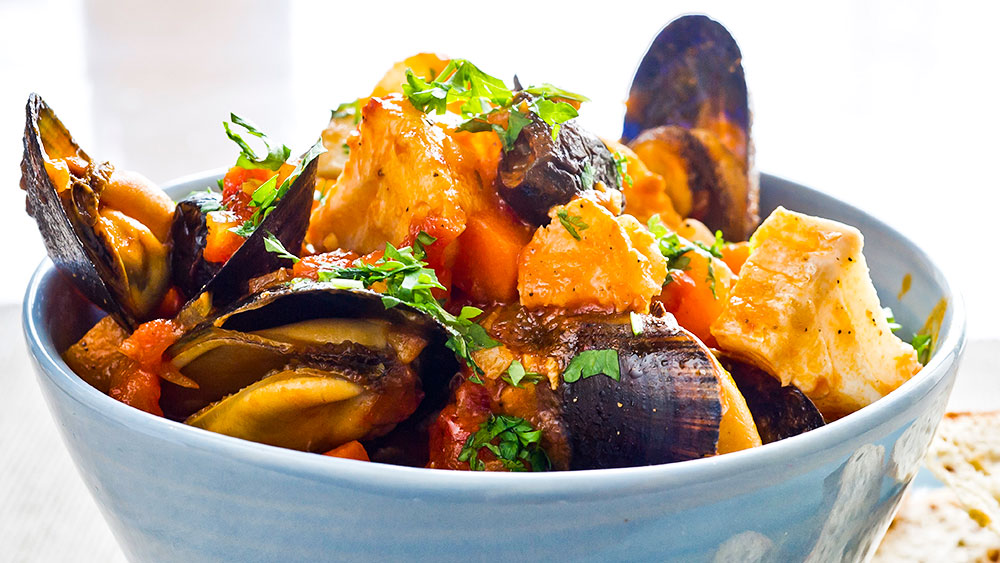
Introduction
Fish stew is a delectable dish that combines the goodness of fresh seafood with a rich and flavorful broth. This hearty meal is a popular choice for seafood lovers around the world. With its diverse ingredients and unique flavors, fish stew offers a delightful culinary experience that is both satisfying and nutritious.

The Origins of Fish Stew
Fish stew has a long history and is believed to have originated in coastal regions where fishing was a significant part of the local culture. Various cultures have their own versions of fish stew, each incorporating local ingredients and cooking techniques. From the Mediterranean bouillabaisse to the Brazilian moqueca, fish stew recipes have evolved over time, resulting in a wide array of delicious variations.

The Health Benefits of Fish Stew
Fish stew is not only a delight for the taste buds but also a nutritious choice. Fish, the primary ingredient in this dish, is an excellent source of lean protein and omega-3 fatty acids, which are essential for heart health. Additionally, fish stew often contains an assortment of vegetables, providing valuable vitamins, minerals, and dietary fiber. This combination of ingredients makes fish stew a wholesome meal that supports overall well-being.

Ingredients and Preparation
The beauty of fish stew lies in its versatility, allowing you to use various types of fish and ingredients based on your preference and availability. Some popular choices for fish include cod, salmon, halibut, or even a mix of seafood. To enhance the flavors, you can add vegetables such as onions, garlic, tomatoes, bell peppers, and carrots. Spices like paprika, thyme, and bay leaves are commonly used to season the broth.

Cooking Methods
There are different methods to prepare fish stew, each offering a unique outcome. One common method involves saut??ing the vegetables and spices before adding the fish and broth. This allows the flavors to meld together beautifully. Another technique involves simmering the fish and vegetables in the broth, ensuring that the dish is infused with all the delicious flavors.

Serving and Accompaniments
Once your fish stew is ready, it's time to serve and enjoy this scrumptious dish. Fish stew can be served as a standalone meal or accompanied by crusty bread or rice to soak up the flavorful broth. Some people prefer adding a squeeze of fresh lemon or garnishing the stew with parsley or cilantro for an added burst of freshness.

Popular Variations of Fish Stew
As mentioned earlier, fish stew recipes vary across different cultures and regions. Let's explore a few popular variations:
Mediterranean Bouillabaisse
A classic French fish stew, bouillabaisse, is a culinary masterpiece that originated in Marseille. It typically includes an assortment of fish, shellfish, onions, tomatoes, garlic, and fragrant herbs. Bouillabaisse is often served with rouille, a garlic-infused mayonnaise, and slices of toasted bread.

Brazilian Moqueca
Moqueca is a traditional Brazilian fish stew known for its vibrant flavors. This variation combines fish, coconut milk, onions, tomatoes, bell peppers, and cilantro. The addition of palm oil gives it a rich, reddish hue. Moqueca is typically served with rice and farofa, a toasted cassava flour mixture.

Indian Fish Curry
In India, fish curry is a popular dish that varies in preparation across different regions. It often features fish, onions, tomatoes, ginger, garlic, and a blend of aromatic spices such as turmeric, cumin, coriander, and chili powder. This flavorful curry is best enjoyed with steamed rice or bread.

Conclusion
Fish stew is a versatile and delicious dish that caters to seafood enthusiasts worldwide. Whether you're savoring a Mediterranean bouillabaisse or a spicy Indian fish curry, fish stew offers a perfect blend of flavors and health benefits. Its adaptability allows you to experiment with various ingredients, creating a personalized culinary experience. So, next time you're craving a hearty seafood meal, consider preparing a delightful fish stew that will tantalize your taste buds and nourish your body.